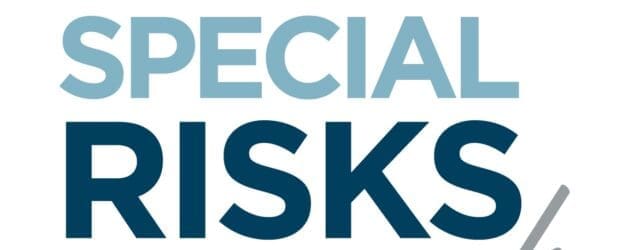Campus culture wars – freedom of speech in higher education
April 2025The debate around freedom of speech and academic freedom in universities was again headline news last week following the decision by its regulator, the Office for Students (‘OfS’), to impose an eye-watering fine of £585,000 on the University of Sussex.
The fine was imposed after the OfS’s investigation determined that the university had failed to uphold freedom of speech. This was the first time that the regulator had found an institution to be in breach of its freedom of speech obligations.
The OfS’s long-running investigation followed protests in 2021 calling for the dismissal of Professor Kathleen Stock, one of the university’s senior academics at that time teaching on matters relating to sex and gender and the related rights of individuals, for expressing gender-critical beliefs that biological sex is real, important, immutable and not to be conflated with gender identity (such beliefs amounting to a ‘protected characteristic’ for the purposes of the Equality Act 2010). Professor Stock ultimately resigned.
In this article we review the OfS’s decision, examine the changes which the Higher Education (Freedom of Speech) Act 2023 (‘Act’) will now introduce in this area and consider their implications for higher education institutions and their insurers.
Background
There has been a growing perception over the last decade that freedom of speech is being eroded in universities, due in part to a small number of high-profile incidents, including various instances of ‘no platforming’ of visiting speakers on account of their views on sensitive matters, particularly on the issue of transgender rights (for example, the petition in 2015 to cancel a proposed lecture at Cardiff University by Germaine Greer, and attempts by the University of Warwick’s students’ union to block Maryam Namazie). Concern has been expressed that an atmosphere of increasing intolerance towards differing opinions is developing, leading to some staff and students self-censoring.
This has prompted debate in recent years about the balance to be struck between free speech, university autonomy and the protection of students and staff from harassment and discrimination, and led to the introduction of the Act by the previous Conservative government, whose 2019 election manifesto included a commitment to strengthen academic freedom and free speech in universities. Building on the obligations to protect freedom of speech and academic freedom already placed upon higher education providers (‘HEPs’) under the Education (No.2) Act 1986 and the Education Reform Act 1988, the Act received royal assent in May 2023. At the start of 2025, the new Labour government reaffirmed its commitment to protecting free speech and academic freedom in higher education, confirming that key provisions of the Act will be brought into force (as discussed later in this article).
Prior to the introduction of the Act, the OfS already had responsibility for regulating matters concerning freedom of speech and academic freedom in higher education through its conditions of registration concerning management and governance. Whilst the OfS cannot presently determine complaints by individuals against institutions concerning restrictions on freedom of speech, it does have power to investigate where it receives a notification that an institution’s conditions of registration have not been met, as in the case of the University of Sussex.
The OfS decision
The OfS became aware in early October 2021 of the protests by students of the University of Sussex against Professor Stock and later that month opened an investigation to ascertain whether:
- The university had taken reasonably practicable steps to secure freedom of speech within the law, and to secure academic freedom, including for people with gender critical beliefs.
- The university’s governing documents upheld the OfS’s public interest governance principles for academic freedom and freedom of speech and otherwise properly reflected other relevant legal obligations, including the Equality Act 2010.
- The implementation of the university’s policies for academic freedom and freedom of speech, as well as for human resource matters and equality, diversity and inclusion matters, had a negative effect on academic freedom and freedom of speech.
Following provisional findings which it shared with the university in March 2024, the OfS produced its case report on 14 February 2025 (‘Report’). The Report concluded the university to have been in breach of two conditions of the university’s registration.
The first breach concerned condition E1 (public interest governance, which condition came into force on 1 August 2019), which provides that an institution’s governing documents must uphold the public interest governance principles applicable to the provider.
The first of these principles concerns academic freedom:
“I. Academic freedom: Academic staff at an English higher education provider have freedom within the law:
- to question and test received wisdom; and
- to put forward new ideas and controversial or unpopular opinions
without placing themselves in jeopardy of losing their jobs or privileges they may have at the provider.
The breach found related to one of the university’s governing documents, its Trans and Non-Binary Equality Policy Statement (‘Policy’), which the university first adopted in late 2018 and which was in place at the time the OfS opened its investigation three years later. The Policy included a requirement that “any materials within relevant courses and modules positively represent trans people and trans lives” (referred to by the OfS as the ‘Positive Representation Statement’). It also included statements that, “the curriculum shall not rely on or reinforce stereotypical assumptions about trans people”, that “transphobic propaganda …will not be tolerated” and that “transphobic abuse, harassment or bullying (name-calling/derogatory jokes, unacceptable or unwanted behaviour, intrusive questions) are serious disciplinary offences for staff and students and will be dealt with under the appropriate University procedures.”
The OfS found that the Positive Representation Statement, along with the other statements in the Policy, restricted certain viewpoints and lawful speech and created a ‘chilling effect’ by indicating that the expression of lawful speech and views which were contrary to it was not acceptable. It found evidence of this effect in that it led Professor Stock to self-censor, by excluding lawful speech and content from her course materials, and considered that other academics may have felt compelled to do likewise.
Whilst the university’s Statute VII provided a degree of safeguarding for academic freedom in that it was found that its proper application should not lead to disciplinary proceedings resulting in adverse outcomes for any staff member being sanctioned for breach of the Policy, the statute did not rule out the possibility of disciplinary proceedings being brought. The OfS determined that exposure to disciplinary proceedings would have obvious detrimental effects and therefore the statute was not an adequate safeguard for academic freedom.
When determining the appropriate sanction for the university’s breach of condition E1, the OfS was required to have regard to Regulation 4 of The Higher Education (Monetary Penalties and Refusal to Agree an Access and Participation Plan) (England) Regulations 2019 in considering whether to impose a monetary penalty. These regulations set out a number of factors to be considered by the OfS in setting a baseline penalty, before factoring-in any aggravating or mitigating factors (including a provider’s record of compliance), and any other relevant factors. The maximum penalty which may be imposed is the higher of 2 per cent of a provider’s qualifying income, or £500,000.
The fundamental importance of freedom of speech and academic freedom meant that the OfS determined the regulatory breach to have been serious. These factors directed the OfS towards a higher starting point for the baseline penalty, although this was discounted to reflect the impact of Statute VII on academic freedom. The OfS accordingly adopted a baseline penalty of £2,091,230 (being 0.9% of the university’s qualifying income of £232.4 million). Whilst recognising the potentially adverse impact that a significant financial penalty might have on a provider’s student body, the OfS was satisfied that such a penalty in this case would not materially affect students, given the university’s significant income and cash reserves. It also considered that a significant, published penalty would be beneficial to students in incentivising compliance by the university, and other HEPs, in the future.
The OfS went on to consider aggravating and mitigating factors. That the breach was longstanding was an aggravating feature, and whilst the OfS recognised that the university’s various revisions to the Policy over the years since the investigation began were going in the right direction, it took the university some time before the Policy was revised appropriately so as not to breach the public interest governance principles on academic freedom. These points effectively cancelled each other out in the OfS’s view, and after noting that the university had no adverse record of compliance with its conditions of registration, the baseline penalty was left unchanged.
Finally, the OfS came to consider any other factors relevant to the penalty. The most significant was the fact that this was the first occasion on which the OfS had found a breach of condition E1 concerning matters relating to freedom of speech and academic freedom. It recognised that this was an evolving and complex area of law and regulation. It also anticipated that the publication of such a significant investigation would contribute to the “overall incentive effect” on regulatory compliance. Taking these factors into account, the OfS significantly reduced the penalty from c£2.1 million to just £360,000.
Whilst not the subject of regulation by the OfS, the regulator observed that the university may also have failed to comply with other, related legal obligations, including its section 43 duty under the Education (No. 2) Act 1986 to take such steps as are reasonably practicable to secure freedom of speech, Article 10 of the European Convention on Human Rights (the right to freedom of expression), its Equality Act 2010 obligations and the Public Sector Equality Duty.
The university was fined a further £225,000 (discounted from £1,626,512) for breach of condition of registration E2 (Management and governance) for failing to operate in accordance with its governing documents. The OfS found that the Policy, the university’s Freedom of Speech Code of Practice and its External Speakers’ Procedure had been approved by groups lacking the delegated authority to give such approval. This gave rise to concerns that important decisions were being made by individuals or groups which had not been identified by the university as being appropriate decision-makers in that area and gave rise to a risk of decisions being made with insufficient scrutiny or expertise. The OfS accordingly determined that these matters were indicative of a sustained issue with the university’s management and governance.
The university has vehemently disputed the OfS’s decision and indicated its intention to challenge it by judicial review.
Implications
Freedom of speech and academic freedom are fundamental to the pursuit of knowledge in higher education and the decision of the OfS highlights its readiness to impose significant fines in the future where HEPs fall short of their obligations to protect these freedoms. The fine imposed in this instance, whilst still significant, was heavily discounted, primarily on account of it being the first occasion that it has determined a university to have breached the relevant conditions of registration concerning free speech. HEPs found to have been in breach in the future are likely to find the OfS adopts a less lenient approach. Whilst the fact that this is the first such decision by the OfS (in an investigation begun as far back as 2021) might suggest that the problem is not endemic, Professor Stock, in an article welcoming the OfS’s decision, opined that many universities still have policies in place which are stifling free speech.
Moving forward, the government now will be bringing into force parts of the Act. This includes the placing of an additional, positive duty on institutions to promote the importance of freedom of speech and academic freedom in the provision of education, and the requirement to have in place codes of practice to ensure protections. There will also be a ban on the use of non-disclosure agreements relating to individuals who have made complaints of sexual abuse, harassment and misconduct, or other bullying or harassment.
The OfS, which currently does not deal directly in disputes between individuals and providers, will oversee a free speech complaints scheme (originally due to have been introduced in August 2024) to adjudicate on complaints from academic staff and visiting speakers, although that will not extend to complaints against students’ unions since the additional duties which were to be imposed on them under the Act will not now be introduced.
The remit of the OfS scheme will not extend to student complaints, which will instead be dealt with through the Office of the Independent Adjudicator (OIA) complaints scheme.
That the Act will be introduced in a somewhat watered-down form will be welcome news to HEPs and their insurers, particularly as the statutory tort has been scrapped on account of concern that the fear of litigation might push providers to adopt a defensive stance even in instances where hateful or degrading speech has been used.
Whether or not the OfS’s decision withstands the challenge intimated by the University of Sussex, it has sent shockwaves through higher education. Where there are any compliance reservations in this area, HEPs will doubtless be reviewing relevant policies in light of the decision to ensure they withstand scrutiny. That, of course, is no easy task. Freedom of speech is not absolute and involves striking a careful balance with the rights and freedoms of others, including the right not to be subjected to discrimination. Institutions required to defend their policies will have to be ready to demonstrate how that balance has been struck.
Download PDF







